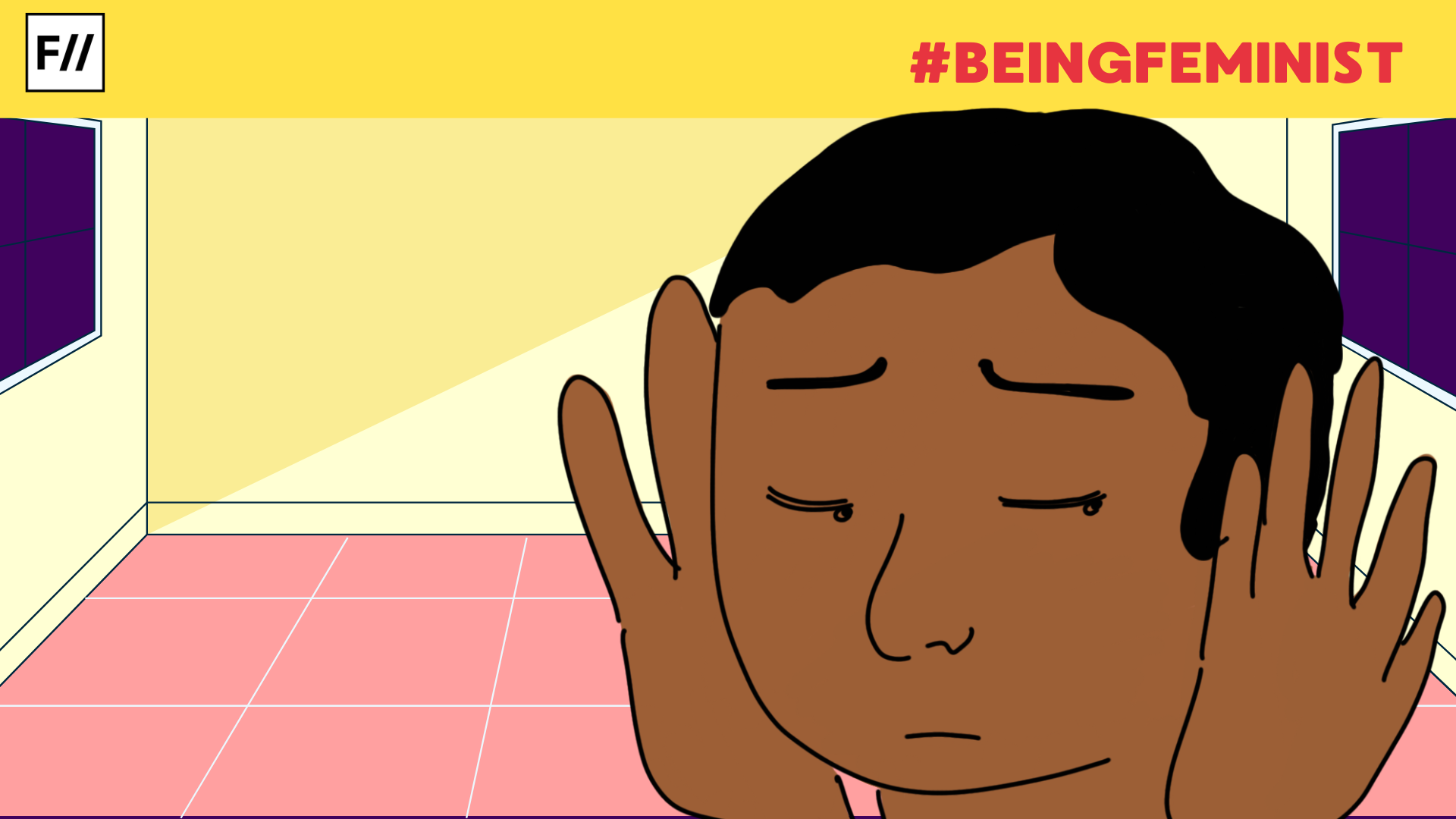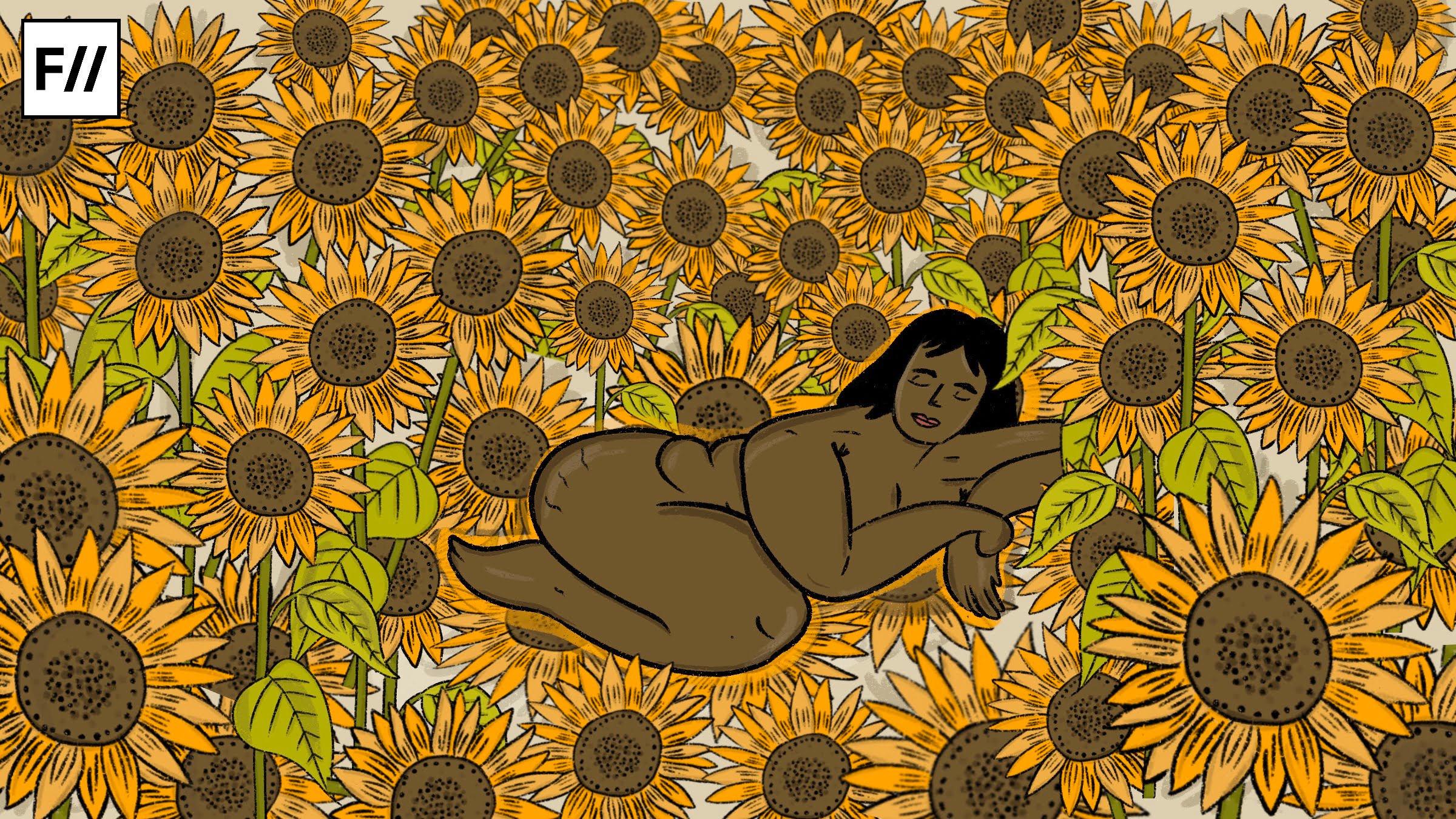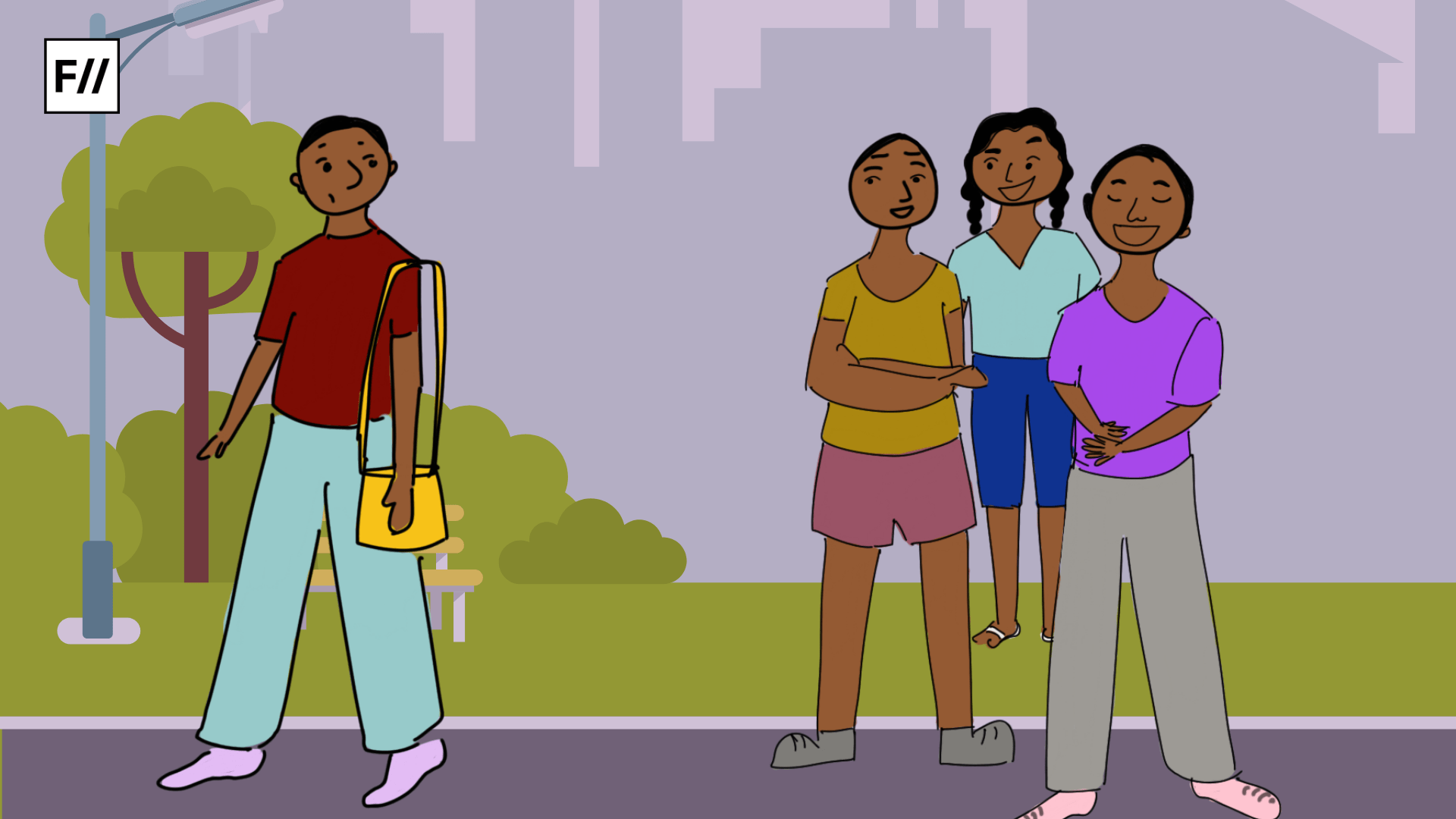“I am a feminist” is an assertive statement of entitlement for me. I often refuse to use this statement as a part of life due to my fear of failing the meaning and sanctity of it.
How do you often navigate the space as a person who identifies as an intersectional feminist in their actions and prohibits using the identity in movement spaces? Actively sporting the idea of being a feminist has made me sit down, understand and question why I must abhor using it.
Being brought up by a single parent, walking through every door of melancholic and overwhelming discussion screaming patriarchy has been a challenge of jeopardy, enlightenment, a heavy downpour of an emotional roller coaster and a journey contemplating mixed emotions.
Undoubtedly, the policies at home often intersect with male interest and it doesn’t necessarily take conscious approval from their counterpart in the structure.
Also Read: Why I Was Acting As A ‘Son’ Growing Up And How Babasaheb Empowered Me While Being A Feminist
This is why, it is an existing dilemma for people coming from different sections to understand, reflect, navigate and redo the same process to bring nuances.
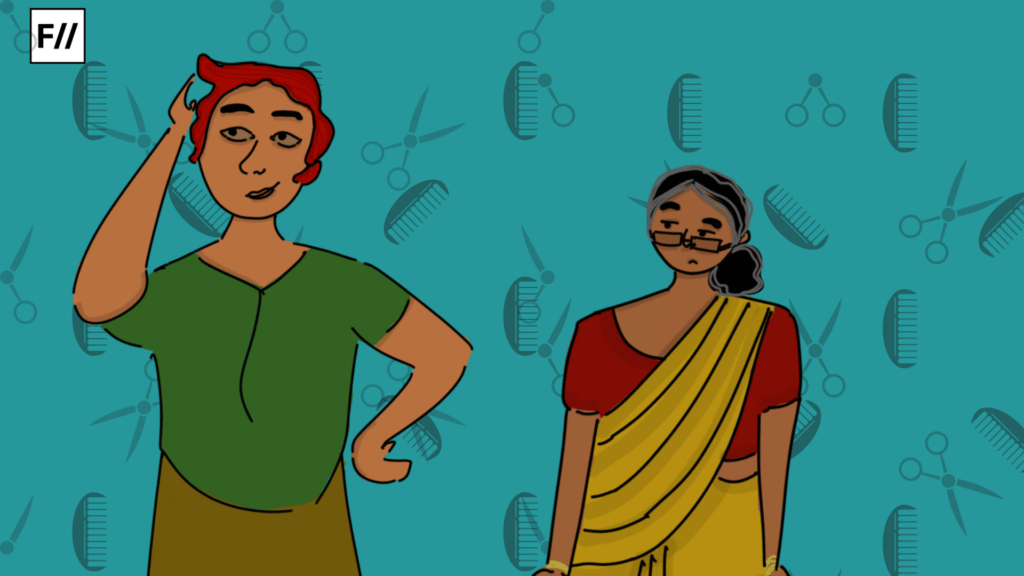
Who else would it be? If humans don’t jeopardise or create more chaos through narrative, actions, and proliferation, then where will the proposed improvement and learning be around discourse?
How do I bring identities, experiences and social pressure to pass under the same umbrella and integrate it with my politics?
I, who come from a Bahujan family, raised by my mother during most of my childhood have perhaps seen a different crest and trough throughout my upbringing.
The closeted mental health concerns, dysfunctional address of emotions, uncontrolled communication and hierarchical notion were a significant part of that time.
Invariably, I have succeeded in little steps to disintegrate myself, heal and also takeaways which are essential fragments of most parts of my life.
Identifying as a trans person and as a journalist who has been actively present in the advocacy of the trans movement, my identity as a northeastern Bahujan person has been my assertion and agency.
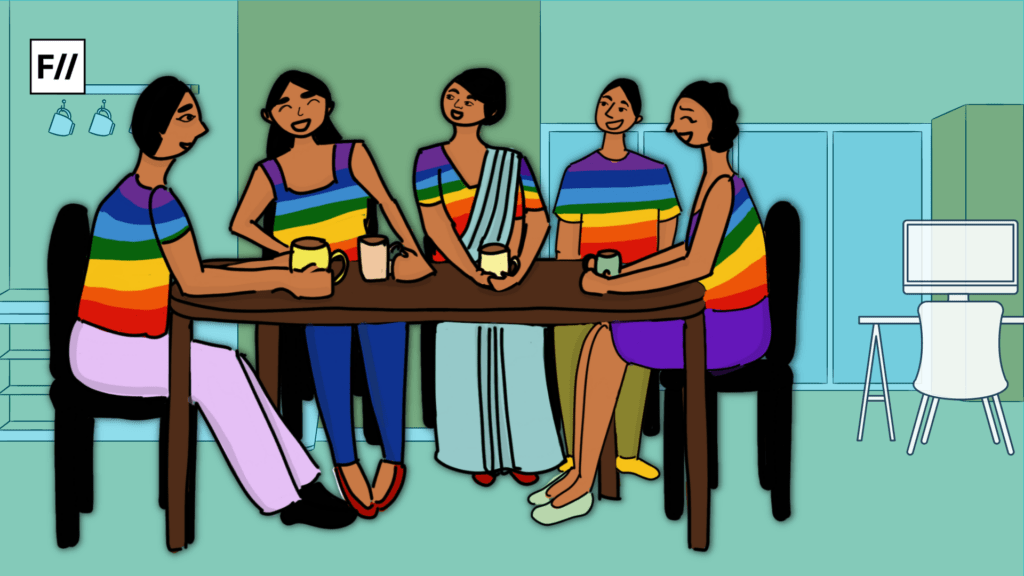
Though, I also feel I contradict the nuances of identifying myself as an intersectional feminist due to my fear of failure to do justice to the identity.
Replacing my identity at times as a northeastern with being a trans person to sometimes asserting my identity as a Bahujan person, makes me believe that the intersection of identities is equally essential to guide and incorporate politics in life.
When you often take up an identity, it is believed that perhaps you should situate yourself with the whole idea of the identity, which is a severe problem for me.
The association of blind faith with every bit of identity is a resounding problem from my lens. I derive some parts of being a communist, some fragments of accepting and acknowledging socialism and a few of being an Ambedkarite. However, dreaming of an egalitarian society has been a source of happiness whereas empathy has always been a definition of radicalism in my politics.
The empathy addressed through the lens of equity, equality and pluralism has always been my belief system. Often, negotiated and ridiculed in several social spaces though I strongly believe it can be aware of the socio-political and cultural values of negotiation as an individual and also in the social interaction of communities.
Replacing my identity at times as a northeastern with being a trans person to sometimes asserting my identity as a Bahujan person, makes me believe that the intersection of identities is equally essential to guide and incorporate politics in life.
Consent, understanding the grey areas of consent, marriage institutions, holding agency to speaking off straight ahead in a fraternity up to my gender expression, gender identity holds a major part of my assertion.
Also Read: Embracing The Contradictions: Understanding The Feminist Aspect Of My Identity
Cooking has been a part of my gender-expressive assertion but at the same time, it is a political statement for me. A part of myself never prohibits or hushes down the use of slurs despite knowing they are an integrated form of patriarchy in our society. Does that make me less patriarchal? No. That doesn’t make me less patriarchal but it also allows me to feel liberated with my own free speech choice.
I assert my identity by claiming proudly against the social institution of marriage that I am completely against, but do I still choose to fight for the rights of equal rights to the marriage of an individual irrespective of gender identity, sexual orientation and sexuality? Yes. Coming from a patriarchal society whose notions figuratively implant a lot of normative thinking in you, behaviour, approach, and lack of critical ability to recognise social calamity have been a significant part of my life.
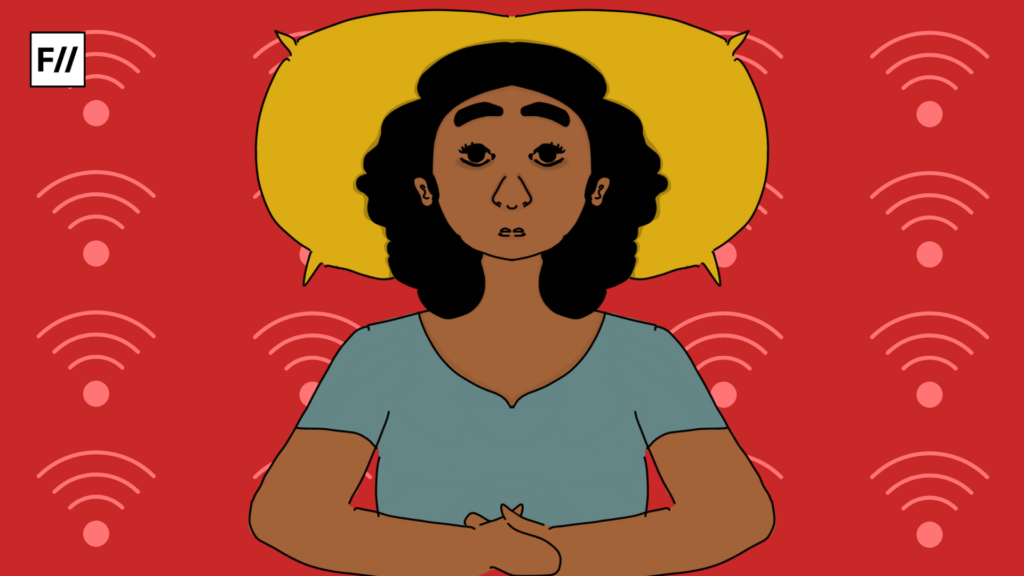
I believe being a feminist is also a process that includes mistakes, faults and our existence of assertion, questionable.
I assert my identity by claiming proudly against the social institution of marriage that I am completely against, but do I still choose to fight for the rights of equal rights to the marriage of an individual irrespective of gender identity, sexual orientation and sexuality? Yes.
As much as it is necessary for the corridor of being from the marginalised voices, my self-reflection and process of building through the notion contradict my own belief. I believe the process is tedious, confusing and lengthy.
From being assigned female at birth where behaviours and voices are often been suppressed in any situation to relatively shifting nuances, recognising issues and concerns both with the core values has been overwhelming and an emotional ride. Obliging to the gender norms ever since childhood to breaking through the process has been a liberating process. The constant shift in the understanding of life, norms, and abatement to natal family and then coming out with identity.
I mostly forbade myself from accepting being an intersectional family due to the exclusive approach of the feminist movement spaces. Where most of life moves around in others deciding how to behave, how to sit, how to talk and at the very essence of life, I question my understanding directed by others at this point. The direction towards an approach in life is non-negotiable and also every time identities build blocks of hierarchy within the community.
Is it necessary to compartmentalise me with identities or is more necessary to build space inclusive for engagements and dialogues? Transmen and transmasculine spaces are mostly marginalised even within the minorities of the queer community.
Also Read: Navigating Arbitrary Domestic Labour Divisions While Being A Feminist
How else can we delve deeper and not negotiate neither with representation or assertion but at the same time gatekeep our perception of political nuances?
Is it necessary to compartmentalise me with identities or is more necessary to build space inclusive for engagements and dialogues? Transmen and transmasculine spaces are mostly marginalised even within the minorities of the queer community.
My arc of resistance is my relentless faith in offering space, understanding and revisiting reflection with honesty and trying to delve deeper into 5W’s and 1H. Often, working as a journalist coming from the marginalised it becomes tougher to resist the emotions and try to liberate from personal experiences, however, it is easier said than done.
I am still struggling as an individual where my identity shifts according to my travel plan, an individual who abides by certain restrictions back at home to being a liberated activist once I drive back to my own living space. It is a journey where my migration also makes my individuality migrate and restructure my politics accordingly varying from space to space.
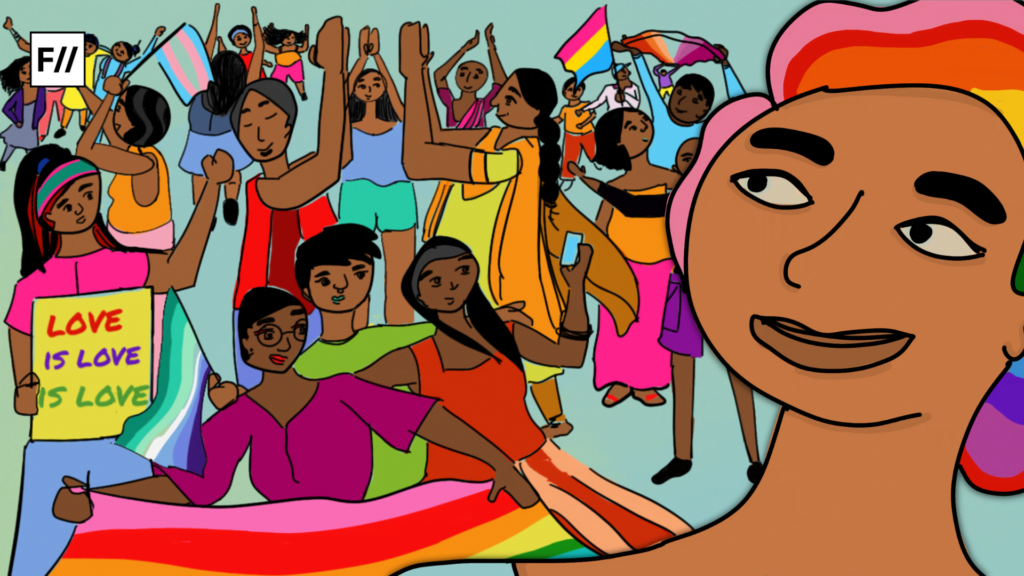
Feminist values are part of my core practising value but the public assertion also somewhere makes me question my ability to sanctify its definition and the constant tension of, what if I fail? That perhaps has remained for the longest time.
I am walking towards the terminologies and gratification of several other identities we as individuals perceive throughout our lives. Similarly, at the same time, it is a walk, a longer walk towards liberty, equality and the values that we share as individuals and most of which are also derivations of us as an individual journey.
Also Read: Gaining Confidence In My Feminist Identity
For now, my actions are a reflection of me, the question if I want to be called an intersectional feminist. I relate but I cannot assert.
